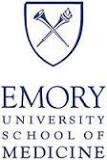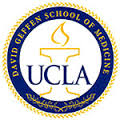Triggered Escalating Real-time Adherence (TERA) Intervention
| Status: | Recruiting |
|---|---|
| Conditions: | HIV / AIDS |
| Therapuetic Areas: | Immunology / Infectious Diseases |
| Healthy: | No |
| Age Range: | 13 - 24 |
| Updated: | 3/22/2019 |
| Start Date: | February 1, 2018 |
| End Date: | August 31, 2020 |
| Contact: | K. Rivet Amico, PhD |
| Email: | ramico@umich.edu |
| Phone: | 734-763-0051 |
Triggered Escalating Real-time Adherence Intervention to Promote Rapid HIV Viral Suppression Among Youth Living With HIV Failing Antiretroviral Therapy: The TERA Study
Youth Living with HIV (YLWH) often face unique challenges achieving high and sustained rates
of adherence to their antiretroviral therapy (ART). Poor adherence can lead to unsuppressed
virus, more advanced HIV disease and poorer health outcomes, eventually exhausting treatment
options. To date however, there are few demonstrated interventions for youth failing first
line therapy. This study will evaluate a novel intervention that uses remote coaching through
video enabled counseling sessions, a 'smart' pill bottle that notifies an adherence coach
when youth fail to open/close the device around dose time, and problem solving outreach by
the coach when and as needed. This intensive 'boot camp' strategy is implemented for 12 weeks
followed by observation through 48 weeks.
of adherence to their antiretroviral therapy (ART). Poor adherence can lead to unsuppressed
virus, more advanced HIV disease and poorer health outcomes, eventually exhausting treatment
options. To date however, there are few demonstrated interventions for youth failing first
line therapy. This study will evaluate a novel intervention that uses remote coaching through
video enabled counseling sessions, a 'smart' pill bottle that notifies an adherence coach
when youth fail to open/close the device around dose time, and problem solving outreach by
the coach when and as needed. This intensive 'boot camp' strategy is implemented for 12 weeks
followed by observation through 48 weeks.
This is a phase II, two-arm, randomized, open-label study. Eligible participants will have
failed ART therapy, defined as having detectable HIV virus (HIV-1 RNA ≥200 copies/ml) within
45 days of enrollment despite having been on ART for at least 24 weeks. They may be
continuing the same ART regimen or starting a new once daily regimen. Participants will be
stratified by age (<18 vs. ≥18 years of age) and randomized in equal proportions to receive
the study intervention (TERA) or standard of care (SOC), with no enrollment limits in each
stratum.
TERA is a time-limited (12 weeks) intervention approach that (a) uses wireless electronic
dose monitoring (EDM) to identify dose-times passing with no bottle opening, (b) sends a text
asking about the delay, (c) evaluates response to text and (d) initiates follow-up by an
adherence coach depending on response and if the bottle remains unopened for a designated
period post dosing. Phone based outreach will use problem solving discussion with an
adherence coach, who can use an agreed-upon contact tree to reach the youth through other
individuals. This "boot camp" strategy is used to unsettle or disrupt established
non-adherence behaviors and factors promoting ongoing non-adherence. The TERA intervention
will be compared with standard of care (SOC).
Participants will be followed for 48 weeks, with clinic visits at entry and weeks 4, 12, 24,
36 and 48. Audio computer assisted self-interviews (ACASI) are conducted every 12 weeks to
collect information on adherence, motivation and skills, social support, mental and physical
health functioning. Viral loads, medication and medical histories are also collected at each
study visit.
The primary objective of the study is to compare HIV-virologic suppression (VLS) rates at 12
weeks. Secondary objectives include comparing VLS rates and EDM rates of ART adherence at 24,
36, and 48 weeks as well as patterns of adherence over time.
failed ART therapy, defined as having detectable HIV virus (HIV-1 RNA ≥200 copies/ml) within
45 days of enrollment despite having been on ART for at least 24 weeks. They may be
continuing the same ART regimen or starting a new once daily regimen. Participants will be
stratified by age (<18 vs. ≥18 years of age) and randomized in equal proportions to receive
the study intervention (TERA) or standard of care (SOC), with no enrollment limits in each
stratum.
TERA is a time-limited (12 weeks) intervention approach that (a) uses wireless electronic
dose monitoring (EDM) to identify dose-times passing with no bottle opening, (b) sends a text
asking about the delay, (c) evaluates response to text and (d) initiates follow-up by an
adherence coach depending on response and if the bottle remains unopened for a designated
period post dosing. Phone based outreach will use problem solving discussion with an
adherence coach, who can use an agreed-upon contact tree to reach the youth through other
individuals. This "boot camp" strategy is used to unsettle or disrupt established
non-adherence behaviors and factors promoting ongoing non-adherence. The TERA intervention
will be compared with standard of care (SOC).
Participants will be followed for 48 weeks, with clinic visits at entry and weeks 4, 12, 24,
36 and 48. Audio computer assisted self-interviews (ACASI) are conducted every 12 weeks to
collect information on adherence, motivation and skills, social support, mental and physical
health functioning. Viral loads, medication and medical histories are also collected at each
study visit.
The primary objective of the study is to compare HIV-virologic suppression (VLS) rates at 12
weeks. Secondary objectives include comparing VLS rates and EDM rates of ART adherence at 24,
36, and 48 weeks as well as patterns of adherence over time.
Inclusion Criteria:
1. Age 13 through 24 years (inclusive)
2. Confirmation of HIV-1 Infection as documented in the participant's medical record by
at least two of the following criteria:
- Reactive HIV screening test result with an HIV antibody or HIV
antibody/antigen-based, Food and Drug Administration (FDA)-licensed assay
followed by a positive supplemental assay (e.g., HIV-1 Western Blot, HIV-1
indirect immunofluorescence, HIV-1/HIV-2 discriminatory immunoassay);
- Plasma HIV-1 quantitative ribonucleic acid (RNA) assay >1,000 copies/mL;
- Positive HIV-1 deoxyribonucleic acid (DNA) polymerase chain reaction (PCR) assay;
or
- Positive plasma HIV-1 RNA qualitative assay
3. Participant aware of his or her HIV infection, as determined by site staff
4. Documented plasma HIV-1 RNA plasma ≥200 copies/mL within 45 days of the date of the
enrollment visit
5. Prescribed antiretroviral therapy for at least 24 weeks or more prior to documented
plasma HIV-1 RNA plasma ≥200 copies/mL.
6. Prescribed a once-daily (one or more pills once a day) ART regimen with at least two
active agents (per clinician judgment or genotype evidence) at enrollment
7. Able to communicate in spoken and written English
8. Currently has a cellular phone that is also able to send and receive text messages
9. Willing and able to provide at least one additional contact phone number (preferably
two) to contact participant
10. Able and willing to provide written informed assent/consent and able to obtain written
parental or guardian permission (if required as specified by the site, by state law,
and/or institutional review board [IRB] policy, and detailed in each site's protocol
implementation plans [PIPs]) to be screened for and to enroll in this study
Exclusion Criteria:
1. Gross cognitive limitations, acute emotional instability, or medical or mental health
illness that in the opinion of site personnel would impair the individual's ability to
provide informed consent and/or interfere with the protocol's objectives
2. Concurrent participation in interventional studies addressing adherence unless
approved in advance by study team
3. Positive pregnancy test at the time of enrollment. If participant becomes pregnant
while on study, they may continue on study
4. Currently using or planning to use an electronic dose monitoring and reminder device
outside of the study
We found this trial at
10
sites
653-1 West 8th Street
Jacksonville, Florida 32209
Jacksonville, Florida 32209
Phone: 904-798-4179
Click here to add this to my saved trials
1648 Pierce Dr NE
Atlanta, Georgia 30322
Atlanta, Georgia 30322
(404) 727-5640

Phone: 404-727-5642
Emory University School of Medicine Emory University School of Medicine has 2,359 full- and part-time...
Click here to add this to my saved trials
3400 N Charles St
Baltimore, Maryland 21205
Baltimore, Maryland 21205
410-516-8000

Phone: 410-614-0732
Johns Hopkins University The Johns Hopkins University opened in 1876, with the inauguration of its...
Click here to add this to my saved trials
1720 2nd Ave S
Birmingham, Alabama 35233
Birmingham, Alabama 35233
(205) 934-4011

Phone: 205-975-7613
University of Alabama at Birmingham The University of Alabama at Birmingham (UAB) traces its roots...
Click here to add this to my saved trials
262 Danny Thomas Pl
Memphis, Tennessee 38105
Memphis, Tennessee 38105
(901) 495-3300

Phone: 901-595-5067
St. Jude Children's Research Hospital St. Jude is unlike any other pediatric treatment and research...
Click here to add this to my saved trials
13065 East 17th Avenue
Aurora, Colorado 80045
Aurora, Colorado 80045
Phone: 720-777-1234
Click here to add this to my saved trials
Click here to add this to my saved trials
Click here to add this to my saved trials
1401 S Federal Hwy
Fort Lauderdale, Florida 33316
Fort Lauderdale, Florida 33316
Phone: 954-728-1136
Click here to add this to my saved trials
10833 Le Conte Ave
Los Angeles, California 90095
Los Angeles, California 90095
(310) 825-4321

Phone: 310-825-5226
David Geffen School of Medicine, UCLA In 2002 Mr. David Geffen announced a $200 million...
Click here to add this to my saved trials